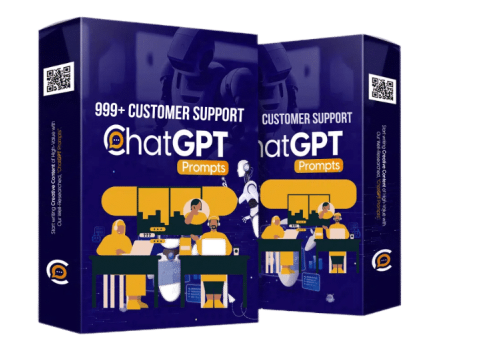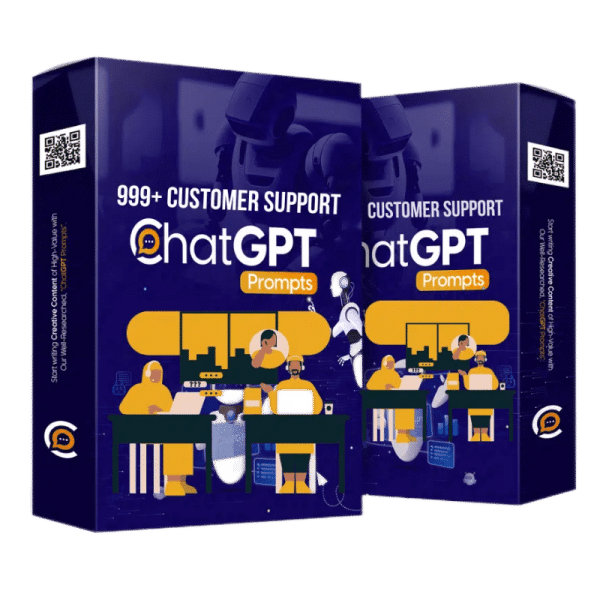As businesses focus on enhancing customer support experiences, ChatGPT has gained popularity as a powerful tool for improving customer interactions. From answering basic inquiries to resolving common issues, ChatGPT helps streamline support operations. In this article, we explore if and how ChatGPT uses customer prompts and how businesses can leverage ChatGPT prompts for customer support through effective prompt engineering to deliver consistent, efficient service.
What Are Customer Prompts in ChatGPT?
Customer prompts in ChatGPT refer to the inputs provided by users to elicit responses that meet their specific needs. These prompts are especially important in a customer support context, as they guide ChatGPT in delivering relevant answers, troubleshooting issues, or offering guidance to users. Businesses rely on prompts for ChatGPT to create a more responsive support system that can quickly address customer questions and concerns.
How ChatGPT Uses Customer Prompts and Prompt Engineering for Customer Support
Understanding how ChatGPT responds to customer prompts is essential for maximizing its potential in customer service. ChatGPT relies on prompt engineering to interpret inputs, breaking down each prompt into keywords and phrases to understand customer intent better.
Step-by-Step: How ChatGPT Responds to Customer Prompts
- Prompt Analysis: ChatGPT first examines the prompt for context and intent, essential elements of effective prompt engineering.
- Response Generation: Using this analysis, ChatGPT crafts a response that aligns with the customer’s needs.
- Feedback and Learning: ChatGPT adapts over time, enhancing its response quality based on feedback and evolving queries.
Through awesome ChatGPT prompts designed to address frequent customer inquiries, businesses can automate responses for a wide range of support scenarios, reducing wait times and improving satisfaction.
Buy Ultimate ChatGPT Prompts PDF for Customer Support
The 999+ Ultimate ChatGPT Prompts for Customer Service is a valuable resource designed to help businesses enhance their customer service efficiency. This collection includes over 999 ready-to-use prompts that can be easily copied and pasted into ChatGPT, an AI tool that assists in managing customer inquiries and support tasks. By using these prompts, customer support teams can automate various functions, such as order management, email responses, and technical support, ultimately saving time and improving service quality.
This prompt pack is particularly beneficial for support professionals who want to maximize the capabilities of ChatGPT without the hassle of creating their own prompts from scratch. It offers practical tips and tricks to ensure users can achieve the best results from their interactions with the AI. With the potential to save thousands of hours annually, this tool is a game-changer for businesses looking to streamline their customer support processes and enhance overall productivity.
Crafting Effective Prompts for ChatGPT in Customer Support
Well-structured prompts are the foundation of effective prompt engineering. Clear, targeted prompts help ChatGPT respond accurately, minimizing misunderstandings and improving customer interactions. Here’s how to create effective ChatGPT prompts for customer service:
1. Prioritize Simplicity in Prompts
Clear, straightforward prompts help ChatGPT understand the customer’s needs quickly, avoiding potential ambiguity.
- Example: Instead of, “I’m looking to know about account access options,” use, “How can I access my account?”
2. Provide Relevant Context
Adding context, especially with prompt para ChatGPT, allows ChatGPT to generate more accurate responses. For example, when customers need help with specific products, mentioning the product in the prompt improves relevance.
- Example: “How do I reset my password for the mobile app?”
3. Break Down Complex Queries
ChatGPT performs best with single queries. Breaking down multi-part questions ensures clearer responses.
- Example: Instead of, “How can I reset my password and update my email address?” use “How can I reset my password?” followed by “How can I update my email?”
By focusing on these techniques, businesses can maximize ChatGPT’s utility in customer support, ensuring fast, relevant responses.
Benefits of Customizing ChatGPT Prompts for Enhanced Support
Customizable prompts allow businesses to tailor ChatGPT’s responses to reflect brand voice and support standards, resulting in improved customer satisfaction. By creating specific chat gpt prompts, businesses can standardize ChatGPT’s responses, enhancing the consistency and relevance of customer interactions.
Advantages of Customizable Prompts
- Personalized Interactions: Custom prompts enable ChatGPT to personalize interactions, creating a better experience by addressing customers by name or acknowledging previous interactions.
- Consistent Messaging: Tailored prompts allow businesses to standardize language and tone, ensuring brand-aligned responses.
- Targeted Responses: Customizable prompts enable ChatGPT to answer questions related to specific products or services accurately.
When a business wants to ensure a friendly customer experience, customizable prompts can help ChatGPT use a conversational and inviting tone, starting responses with phrases like “Hello! How can I help you today?”
Integrating ChatGPT Prompts with CRM Systems for Improved Service
For enhanced customer support, businesses often integrate ChatGPT with Customer Relationship Management (CRM) systems. CRM integration allows ChatGPT to access data such as past interactions or purchase history, helping it provide more personalized and informed responses.
Benefits of CRM-Integrated Prompts
- Quick Query Resolution: With CRM data, ChatGPT can provide direct responses, minimizing the need for follow-ups.
- Contextual Relevance: CRM access enables ChatGPT to tailor responses based on previous customer interactions, creating a more personalized experience.
- Enhanced Personalization: By referring to customer details, ChatGPT can personalize its responses further, increasing engagement.
Businesses that integrate CRM systems with ChatGPT can ensure faster, contextually relevant responses, contributing to improved customer satisfaction.
Examples of ChatGPT Prompts for Common Customer Support Scenarios
Here are common customer service scenarios where ChatGPT prompts can simplify interactions:
1. Account Management
- Prompt: “How can I reset my password?”
- ChatGPT Response: “To reset your password, go to the login page and select ‘Forgot Password.’ Follow the instructions to reset it.”
2. Billing and Payment
- Prompt: “I was double-charged for my last order.”
- ChatGPT Response: “We apologize for the error. Please contact our billing department at [email] or use the form in your account dashboard to resolve this.”
3. Product Information
- Prompt: “What are the specifications for the latest model of your product?”
- ChatGPT Response: “Our latest model includes…”
4. Order Tracking
- Prompt: “Where is my order?”
- ChatGPT Response: “Please enter your tracking number here or log in to your account to see your order status.”
Using awesome ChatGPT prompts in these scenarios enables businesses to provide prompt, accurate information, improving customer satisfaction.
Training ChatGPT for Better Customer Support Outcomes
Training ChatGPT on industry-specific data allows it to understand and respond more accurately to customer prompts. By updating its training data with frequently asked questions and customer interactions, ChatGPT can offer better, more relevant answers.
Methods for Training ChatGPT
- Use Historical Customer Data: Analyzing past support queries helps refine ChatGPT’s responses for improved consistency.
- Implement a Feedback Loop: Customer feedback enables ChatGPT to adapt its responses over time, ensuring it continues to meet evolving expectations.
- Monitor Prompt Effectiveness: Regularly reviewing prompt performance helps ensure that ChatGPT’s responses are relevant and accurate.
These training practices enable businesses to enhance ChatGPT’s functionality in customer support, ensuring efficient and reliable service.
Measuring ChatGPT’s Effectiveness in Customer Support
To ensure ChatGPT’s customer support capabilities meet service standards, businesses should track key performance indicators (KPIs) that monitor prompt accuracy, response speed, and customer satisfaction.
Key KPIs to Track
- Response Accuracy: Ensures that ChatGPT provides correct and relevant answers to customer questions.
- Resolution Time: Measures how quickly ChatGPT resolves customer queries.
- Customer Satisfaction: Captured through surveys or feedback forms, customer satisfaction is essential for assessing ChatGPT’s impact.
Measuring these KPIs helps businesses continually optimize ChatGPT to meet evolving customer needs.
Conclusion: Leveraging ChatGPT Prompts for Superior Customer Support
ChatGPT has become a valuable tool for enhancing customer support. By employing optimized ChatGPT prompts, businesses can deliver accurate, efficient responses, improving satisfaction and reducing wait times. With prompt engineering, CRM integration, and ongoing training, ChatGPT can create a seamless customer support experience that builds trust and loyalty.





